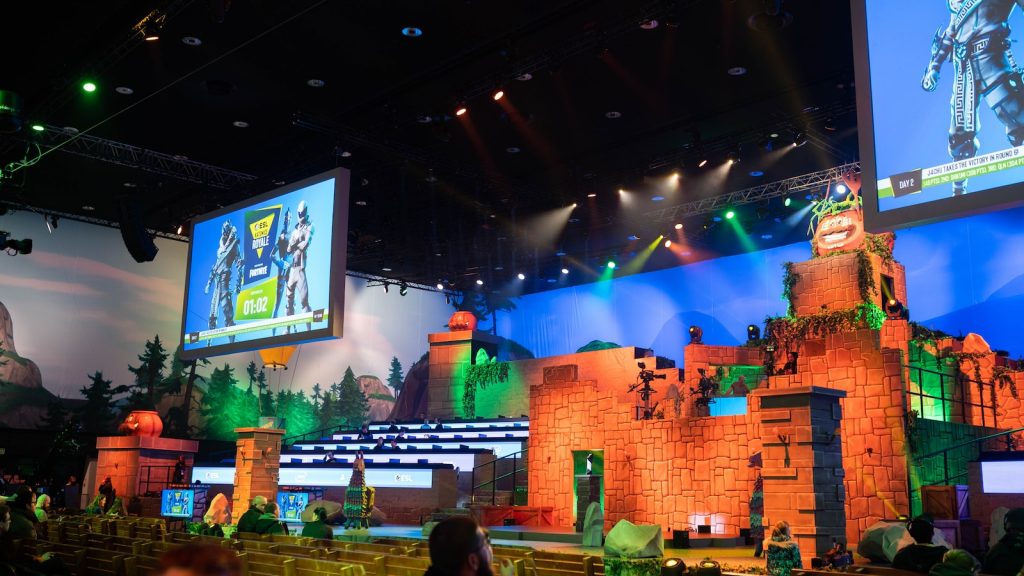This post may contain affiliate links which means I may receive a commission. Learn more on my Privacy Policy page.
How Did Video Games Influence Popular Culture?
Gaming has had a profound effect on contemporary pop culture. As other forms of popular entertainment such as movies, TV shows and music struggle to remain relevant, gaming has gained in popularity and remains relevant today.
No matter your taste in video games – from action and adventure to role playing and beyond – they offer something for everyone. In this article we’ll look at how video games have affected popular culture both positively and negatively.
READ MORE: Unlock the Power of Telepathy with Medium Card Game
Origins
As video games began becoming mainstream in the 1970s and ’80s, their inspiration often came from other forms of popular culture. Space Invaders was released soon after Steven Spielberg’s movie of the same name was made popular – in 1981.
Popularity of this game inspired arcade video games and the production of home gaming systems such as Pong by Atari; later computer programmers developed programming languages that made creating custom video games easier for people.
This period saw video game franchises flourish like Nintendo’s Super Mario Bros. and The Legend of Zelda. Television programs dedicated to video gaming were also quite popular, such as Pole Position and Q*bert being promoted through multiple shows on television. Sony and Sega released consoles which quickly dominated the market; these allowed gamers to access their favorite titles without spending money at expensive arcade machines; thus expanding mainstream acceptance for this industry.
READ MORE: From Pixels to Polygons: The Profound Impact of 2D to 3D Graphics on the Gaming Industry
Characters
Video games draw inspiration from popular culture in many aspects, from their characters and soundtracks to how people play them. But video games are now also beginning to have their own cultural influence – as evidenced by an increase in movies based on video game themes like Mortal Kombat, Lara Croft: Tomb Raider and Tron.
Early on in video gaming’s evolution, gamers formed close ties to characters they encountered while gaming; spending hours both at arcades and at home immersing themselves into their favourite titles. Some of these characters have since become cultural icons with their faces appearing on t-shirts and merchandise bearing their likenesses.
But there are numerous issues regarding the depiction of women in video games and their creation with a masculine bias. Gaming has also been linked with lack of social interaction and antisocial habits among users; video games are frequently criticized for violence that desensitizes players to real-life violence while being addictive; they have even been blamed for decreasing awareness about issues like these in society at large.
Genres
Gaming’s advent as part of youth culture saw game design evolve into various genres. From early space shooters, to today’s immersive interactive sandboxes and simulation games – each genre boasts its own set of styles, mechanics and fan bases.
Simulation games focus on operating businesses or building cities within an imaginary universe that players can explore. RollerCoaster Tycoon and The Sims are classic examples of this genre, while flight and racing simulation titles also fit within this genre.
These genres have had an enormous impact on other forms of video games as well as popular culture. Arcade titles like Pac-Man, Q*bert and other favorites like Pokemon or Super Mario Bros have inspired television programs featuring these characters, while those inspired by them such as Pokemon have led to whole franchises dedicated to them like those found within Super Mario Bros.
Video game genres each boast their own subcultures and communities among gamers who share an affinity for a particular title, leading to online fandoms such as The Guild and Game Grumps; music composed by composers such as Jonathan Coulton (whose song Still Alive appears in Valve’s Half-Life credits); as well as online fandoms like Game Grumps.
Music
Video games have had a profound effect on other forms of media in many ways, from their design to their educational value. Furthermore, they’ve served as inspiration for new forms of expression such as movies and music – without question video games have contributed greatly to modern culture!
Gaming culture (or “gamer culture”) is an emerging new media subculture associated with video game hobbyists that has grown increasingly influential over time.
In the 1970s, video games first made their debut, quickly becoming a fad among youth culture. At first viewed as mindless entertainment, young people spent hours at arcades and home video game consoles competing against one another in simple arcade-like games like Spacewar! By the 1980s, gaming had become a central component of American culture – leading to iconic characters like Pac-man and Frogger being created, as well as being featured on popular television series such as Super Mario Bros and Pokemon franchises.
READ MORE: What are Some of the Most Iconic Video Game Music Themes of All Time?
Film
As the video game industry has expanded, so too has its influence on popular culture. Many have taken notice and begun questioning their effects – whether positive or negative – of gaming.
As early as the 1950s, computer programmers developed simple electronic games to demonstrate what computers could do. Once completed, these early video games would then be demonstrated to other programmers and members of the public who became so fond of them they started purchasing consoles of their own.
Time passed and these games grew more sophisticated with every passing decade, offering players immersive storylines and virtual environments they could immerse themselves in. Gaming became part of our culture; gamers identified with particular characters while sporting apparel to show their devotion.
Video games have also had a significant impact on popular culture, with some fans creating online communities dedicated to discussing their favorite game or series of games. This phenomenon has contributed to an upsurge in so-called esports competitions among professional video game players.




